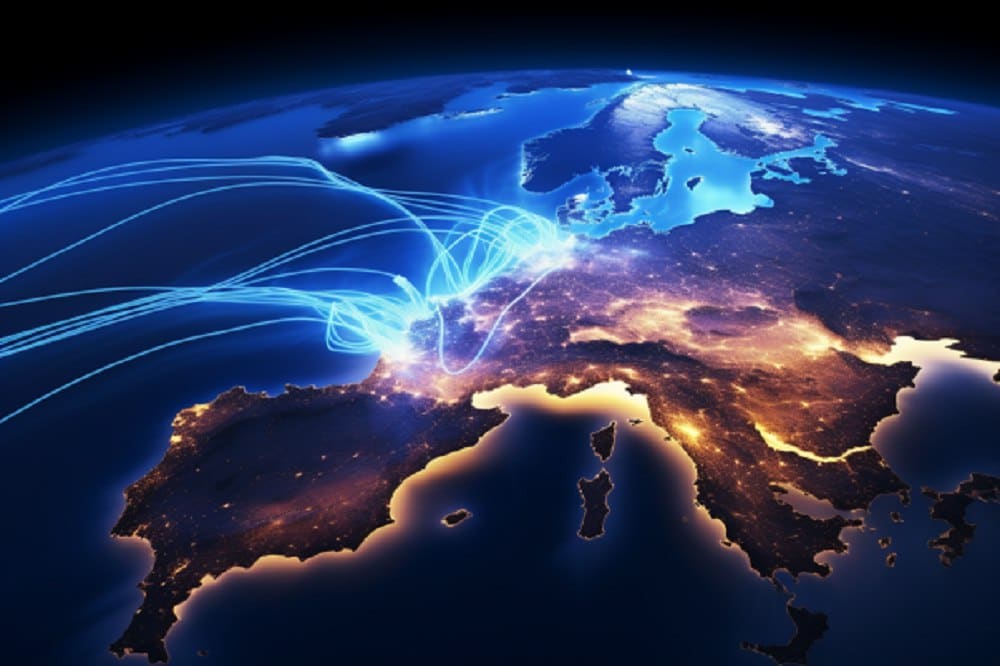Fiber Optic And Electricity Cable
Israeli Prime Minister Benjamin Netanyahu has proposed infrastructure projects to connect Asia and the Arabian Peninsula with Europe via Israel and Cyprus. These projects encompass the development of fiber optic and electricity cables, offering a reliable and efficient corridor for communication and energy transmission.
Netanyahu believes that realizing these projects hinges on normalizing relations between Israel and neighboring countries and will foster regional cooperation. Netanyahu’s vision for this extensive infrastructure is underpinned by the 2020 Abraham Accords, which successfully normalized relations between Israel, Bahrain, and the United Arab Emirates.
Moreover, the Biden administration has been actively pursuing official ties between Israel and Saudi Arabia, further solidifying the prospects for such initiatives.
The Shortest, Safest, And Most Economic Route
One of the key components of this vision is establishing a fiber optic connection, which Netanyahu emphasizes as the shortest, safest, and most cost-effective route between Asia and Europe. During discussions with President Nikos Christodoulides, Netanyahu reiterated the strategic importance of this move, aligning it with the overall goal of strengthening regional partnerships.
This proposal is not isolated but rather an extension of Israel’s growing collaboration with Cyprus and Greece, particularly in the energy field. Significant natural gas deposits have been discovered in the economic zones of Israel and Cyprus, setting the stage for enhanced energy cooperation.
Netanyahu has reaffirmed his dedication to implementing a 2,000-megawatt submarine power cable called the EuroAsia Interconnector, which will connect Israel to Greece and Cyprus. This cable is essential as it will be a vital energy backup, guaranteeing a constant electricity supply for both countries.
Netanyahu explains, “You want to be connected to other sources of power that can allow a more optimal use of power or give you power when there is a failure in your country.” Another planned energy-related project is the Cypriot proposal to construct a pipeline that transports offshore natural gas from Israel and Cyprus to the eastern Mediterranean island.
This gas is utilizable for electricity generation or exported as liquefied natural gas (LNG) via ships. The current geopolitical context magnifies the project’s significance, where Europe actively seeks energy diversification due to Russia’s conflict in Ukraine.
Consequently, Cyprus and Israel aim to create a dependable pathway that connects the East Mediterranean basin to Europe. This encompasses various projects, including gas pipelines and LNG processing plants.
Strengthening Regional Safety And Security
Another vital aspect of the collaboration is establishing a regional firefighting hub in Cyprus, a move fully supported by Netanyahu’s government. This hub would serve as a base for deploying aircraft and advanced firefighting technology to assist neighboring countries in combating wildfires.
The Israeli leader stressed the urgency of this endeavor, citing the rising global temperatures and the heightened risk of wildfires. Israel and Cyprus aim to enhance their firefighting capabilities and contribute to regional safety by working together.
Netanyahu’s discussions with Nikos Christodoulides (Cyprus’ president) led to a trilateral meeting with Greek Prime Minister Kyriakos Mitsotakis. These meetings signify the deepening ties and friendships between the leaders and their nations.
Netanyahu described these relationships as “real” and “long overdue,” highlighting the commitment of these countries to advancing regional cooperation and addressing everyday challenges.

